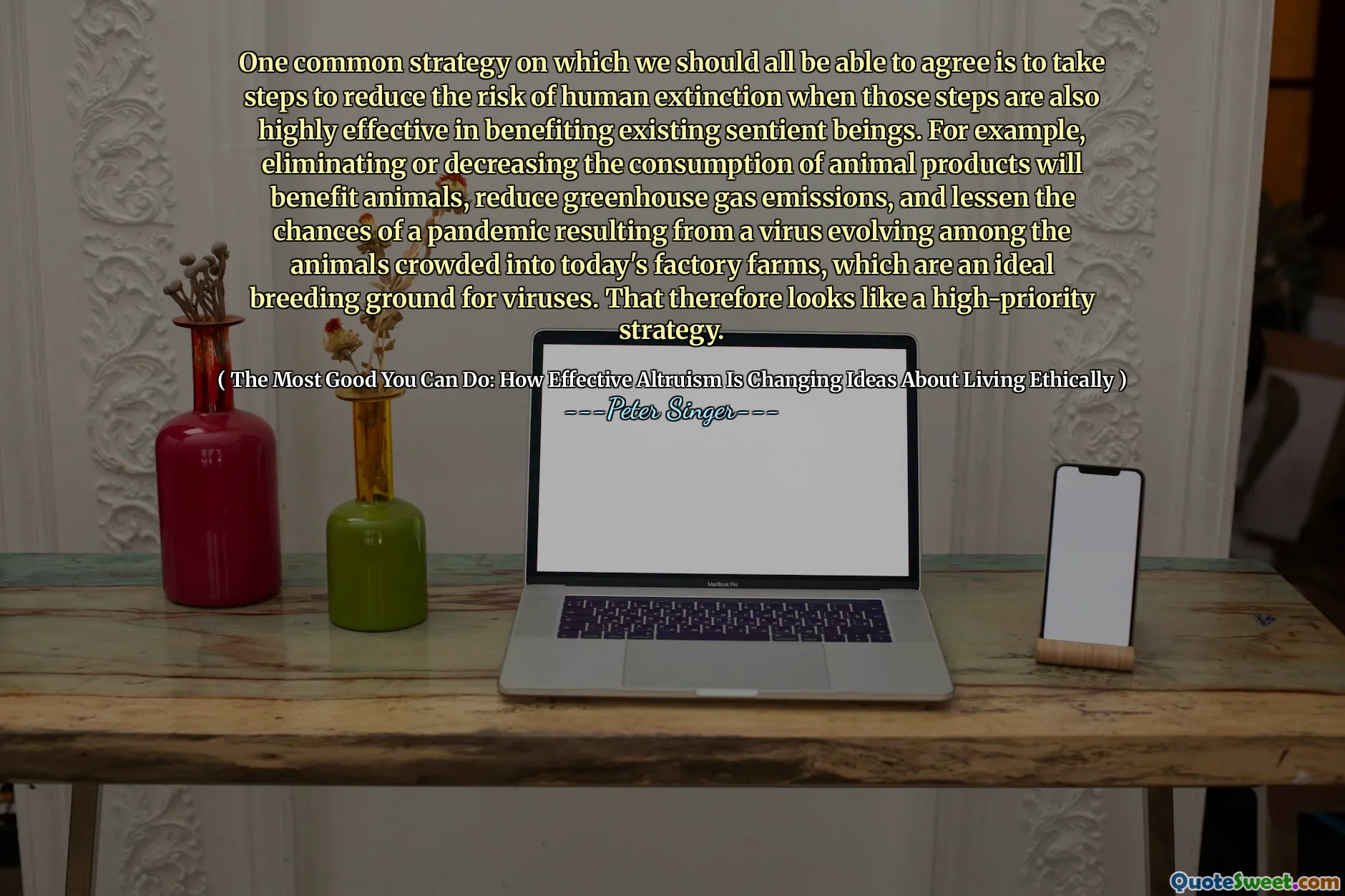
One common strategy on which we should all be able to agree is to take steps to reduce the risk of human extinction when those steps are also highly effective in benefiting existing sentient beings. For example, eliminating or decreasing the consumption of animal products will benefit animals, reduce greenhouse gas emissions, and lessen the chances of a pandemic resulting from a virus evolving among the animals crowded into today's factory farms, which are an ideal breeding ground for viruses. That therefore looks like a high-priority strategy.
This quote underscores a profoundly ethical and pragmatic consideration bridging personal choices and global existential risk reduction. The idea of reducing the risk of human extinction is often conceived as an abstract or distant goal, but here it’s grounded in tangible everyday actions such as reducing animal product consumption. The linkage between animal welfare, environmental impact, and public health highlights how interconnected our choices are. Factory farms are depicted as epicenters not only of animal suffering but also of climate change and pandemic risk, illustrating how overlapping crises can be mitigated through thoughtful strategies.
Such a perspective resonates deeply within the framework of effective altruism, which urges action focused on maximizing positive impact. By advocating for changes that simultaneously improve the well-being of sentient beings and address global threats, the argument calls for alignment between moral values and practical strategies. It offers a compelling call to consciousness: that individual lifestyle choices have repercussions that extend far beyond the immediate sphere of personal health or animal ethics. This integrated approach also fosters a holistic understanding of responsibility — one where human survival, animal welfare, and planetary health are inseparable. This insight challenges conventional compartmentalization in ethics and policy, encouraging unified strategies that promote both immediate and long-term flourishing. Ultimately, this quote invites reflection on how the most effective forms of altruism may arise from embracing interconnected systems and tackling root causes rather than isolated symptoms.






